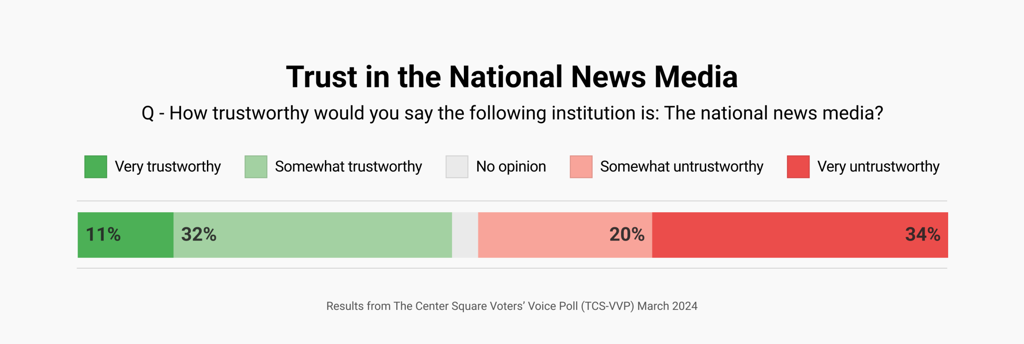The decline in trust in news media among likely voters can be attributed to a confluence of factors that have evolved over time, reshaping public perception. Historically, trust in media was relatively stable, with many citizens viewing news outlets as credible sources of information. However, several key shifts have contributed to the erosion of this trust.
One of the primary factors is the perceived bias and partisanship within media organizations. Many voters believe that news outlets favor certain political ideologies, leading to skewed reporting. This perception is often fueled by the increasing polarization in media coverage, where outlets are seen as catering to specific political audiences rather than providing balanced reporting. Studies have shown that a significant portion of the public feels that news media is biased, which undermines its credibility.
Sensationalism also plays a critical role in fostering distrust. In the race for higher ratings and greater online engagement, some news organizations resort to sensational headlines and exaggerated reporting. This practice not only distorts facts but also diminishes the quality of information being disseminated. The tendency to prioritize entertainment value over factual reporting can erode public trust in media as a reliable source of information.
The rise of social media has further complicated the landscape. Social media platforms have become major sources of news for many voters, yet they also serve as breeding grounds for misinformation and fake news. The rapid spread of unverified information on these platforms can create confusion and skepticism towards traditional news outlets. Misinformation and fake news, often propagated through social media, have been substantial factors in diminishing the public’s trust in the news media.
These dynamics have been reflected in various surveys and statistical data. For instance, a recent survey by Gallup found that only 36% of Americans trust the mass media to report news fully, accurately, and fairly. This represents a significant decline from previous decades, underscoring the growing skepticism among the public.
Over time, these factors have collectively contributed to a pervasive sense of distrust in the news media. As media practices continue to evolve, addressing these issues will be crucial in restoring public confidence and ensuring the media’s role as a credible source of information.
The Implications of Media Distrust on Democracy and Society
The growing distrust in news media among likely voters has profound implications for democracy and society at large. When citizens lose faith in the media, the bedrock of informed decision-making is compromised. This erosion of trust can lead to a disengaged electorate, where individuals are less likely to participate in voting or civic activities, thereby weakening democratic processes. Misinformation and disinformation can flourish in such an environment, further distorting public perception and undermining the integrity of elections.
One significant consequence of media distrust is the rise of alternative media sources and echo chambers. With traditional news outlets viewed skeptically, people often turn to other platforms that may reinforce their preexisting beliefs rather than challenge them. This fragmentation of information sources can polarize society, as individuals are less exposed to diverse viewpoints, leading to a more divided public discourse. Such polarization hampers constructive debate and mutual understanding, essential components of a healthy democracy.
The risks of a misinformed or uninformed electorate cannot be overstated. When voters base their choices on inaccurate or biased information, the very essence of representative democracy is threatened. Policies and leaders that emerge from such distorted processes may lack legitimacy and fail to address the true needs and concerns of the populace. Moreover, an uninformed public is more susceptible to manipulation by various interest groups, further eroding the democratic fabric.
Rebuilding trust in news media requires a multifaceted approach. Promoting media literacy is crucial, empowering citizens to critically evaluate the information they consume. Educational programs that teach people how to discern credible sources from dubious ones can mitigate the spread of misinformation. Improving journalistic standards is also vital; news organizations must adhere to principles of accuracy, fairness, and transparency to regain public confidence. Efforts to increase accountability within the media industry, such as independent oversight bodies, can further bolster trust.
Examples from other countries offer valuable insights into effective strategies for restoring media trust. For instance, Finland’s comprehensive media literacy education has been successful in fostering a well-informed citizenry. Similarly, Denmark’s stringent journalistic guidelines have helped maintain high standards of news reporting. By adopting and adapting such initiatives, nations can work towards reconstructing a more trustworthy media landscape.




































